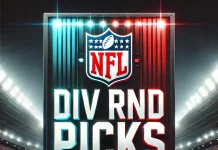Illegal Betting vs Legal Sports Betting
Former MLB umpire Joe West has stated that he fears that making sports betting widely legal will cause hitmen to break the legs of non-compliant sportsmen.
However, what he doesn’t seem to know is that illegal sportsbooks have been in operation throughout the United States, raking in billions of dollars annually, and to date no bettors have received an iron pipe to the legs for hitting a game-winner when they were told to lose the game.
Theoretically, the likelihood of a mob beat-down of players or umpires would lessen over as legal sports betting takes the place of illegal sports betting. How long the process of that transition of dirty to clean will take however, is up for debate.
Illegal betting will lessen, but not disappear
It’s estimated that the size of the illegal sports betting market put it is around $150 billion plus annually, however there is no way to say how accurate this number is.
Over the past year, the Las Vegas Review-Journal wrote an article saying that Nevada sportsbooks took a handle of $4.8 billion in bets.
As of right now, those “illegal” bookmakers have a massive advantage over Vegas, whose handle is about 3% of the illegal sports betting market.
Despite that sizeable difference, there will be a gradual change over the coming years. Gaming consultant and former casino executive, Bob Ambrose, has stated that he sees a massive shift occurring over the next couple of years.
“Is the illegal sports betting market totally going to disappear in 12 months? I don’t think so. It’s going to take time. There’s no way to officially track it in terms of money spent in illegal betting operations. If you were able to track it from today to three years from now you’re going to see a marked difference”
How long it takes for legal sports betting to gain a bigger handle than illegal sports betting will have a lot to do with how fast states move to adopt sports betting, Ambrose said.
Even then however, there is no guarantee that states who run legal sports betting operations will be able to stamp out illegal sports betting, said Greg Gemignani, an attorney with Dickinson Wright specializing in casino law.
The success of legal sports betting and how it relates to illegal sports betting will likely be dependent on fees, options and guaranteed payouts.
Tax: Illegal bookies have the edge
States who opt to levy big taxes on sports wagering may not get the number of incoming sportsbooks they’d been looking for, as higher rates of tax would likely discourage business owners.
The margins for sports betting and the bookmakers involved are thin. Las Vegas takes a margin of around 4.52% — and heavy taxes like the 36% Pennsylvania has imposed cut deeply into those already slim margins.
It’s going to depend on the cost and the price difference between betting legally and betting illegally on sports. If you happen to overtax it you are going to limit the ability for a bookmaker to operate successfully in your state.
Illegal bookmakers already operate outside of the law so there are no taxes for them to pay. This largely reduces overhead costs and could make them a better choice financially.
Guaranteed payouts: Legal bookmakers win
While illegal bookmakers have many obvious advantages that will likely keep them around long after legal sports betting has taken hold in their state, there is one big advantage that legal bookmakers have that may sway many bettors, and that is guaranteed payouts.
If a local bookie overextends himself or herself and can’t cover your win, you’re out of luck.
If you are betting with an offshore bookmaker and having difficulties withdrawing funds, there is often little recourse you can take to obtain your winnings.
Variety of betting: Illegal books have the edge
As for choice of betting markets, gamblers who are already partake in illegal sports betting may not look to swap over to a legal bookmaker, as their current “illegal” bookmaker may be able to provide them a wider variety of sports betting markets and options, whereas the state may limit their betting options to mobile devices or certain sports betting markets.
Will states offer the same products and markets as offshore or illegal bookmakers? Some people are talking about parlay, then single parlay and some just mobile. In those states, illegal operators will be able to offer everything, and therefore have a massive advantage in obtaining and keeping players.
On-boarding: Illegal bookmakers have the edge
As for ease of betting, a state could lose players to illegal bookmakers if they make it difficult to place a bet on sports easily. In Vegas, those who want to bet on sports must fill out an application and provide identification in order to bet.
If other states adopt a tighter on-boarding process for new bettors, this may keep certain bettors away from the brick and mortar casinos.





































